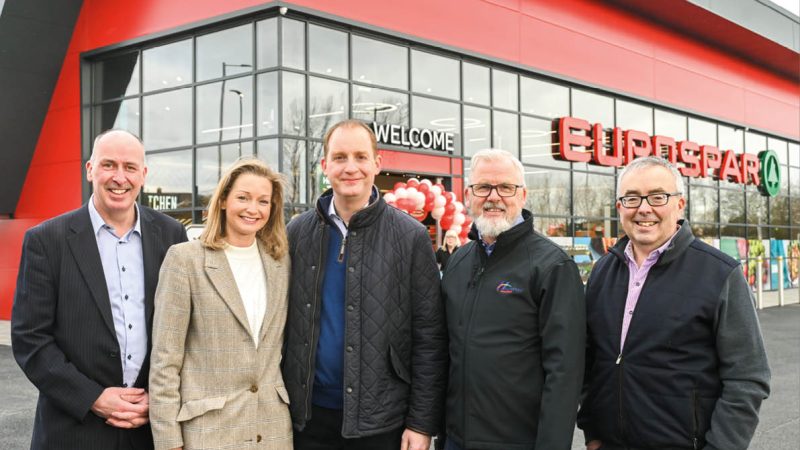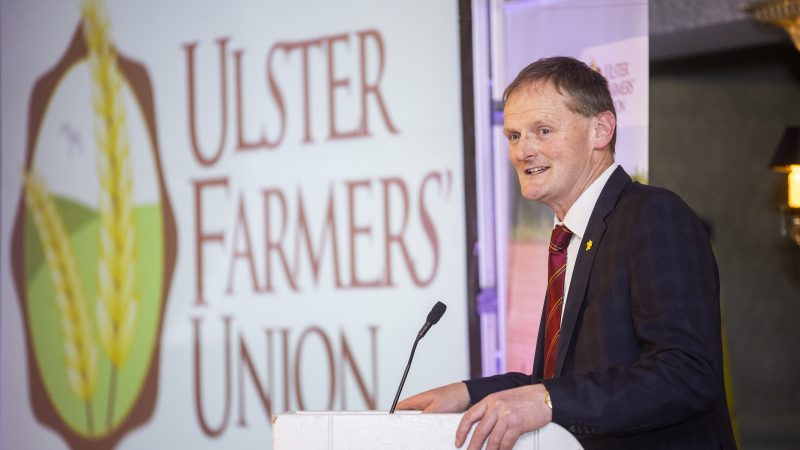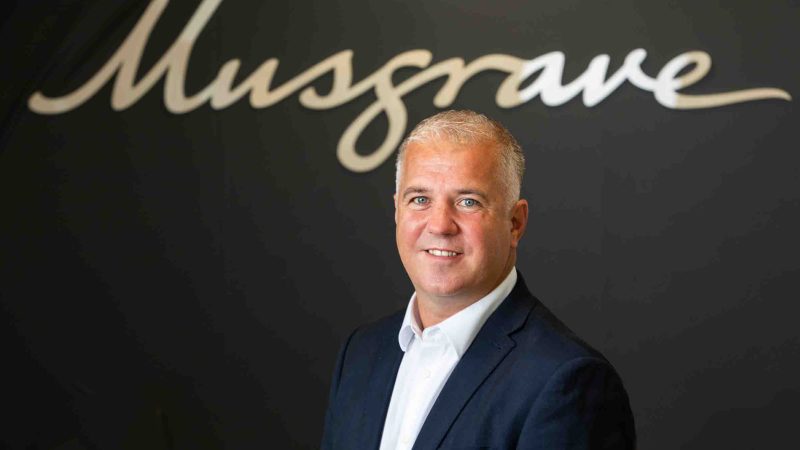New NIIRTA president speaks to NR

NIIRTA president Rowan Black; Richard Caldwell from Danske Bank; NIIRTA CEO Glyn Roberts; and First Minister Arlene Foster at the launch of ‘The Plan’
NIIRTA’s new president Rowan Black tells Neighbourhood Retailer that government needs to step up its support for local retail
It’s a crucial time for local independent retailers – but then again, it always is.
Retail’s dependence on fine margins, balancing value against slight margins, means it is constantly walking a tightrope between success and calamity.
It’s why groups like the Northern Ireland Independent Retail Trade Association (NIIRTA) find themselves whacking moles of all shapes and sizes at such regular intervals. Tiny variations in policy, demography or economy has huge implications for the retail industry, and as NI’s biggest source of employment, it requires close attention.
It’s why the group release advisory reports at such regular intervals, and why their latest document is one of their most comprehensive yet.
NIIRTA’s Economic Programme for Government 2016-2021, dubbed ‘The Plan’, contains an impressive 97 policy recommendations for the Stormont Executive to consider, providing a roadmap to prosperity for local independent traders.
It’s also why the group puts such high-calibre people into the helm.
Rowan Black, proprietor Lisburn’s favourite traditional food emporium, Greens Food Fare, was revealed as NIIRTA’s new president at the beginning of December.
Succeeding the long-serving Paul Stewart, Rowan’s involvement with Food Force Ireland and lengthy service in retail strengthens NIIRTA’s position as a lobby with direction.
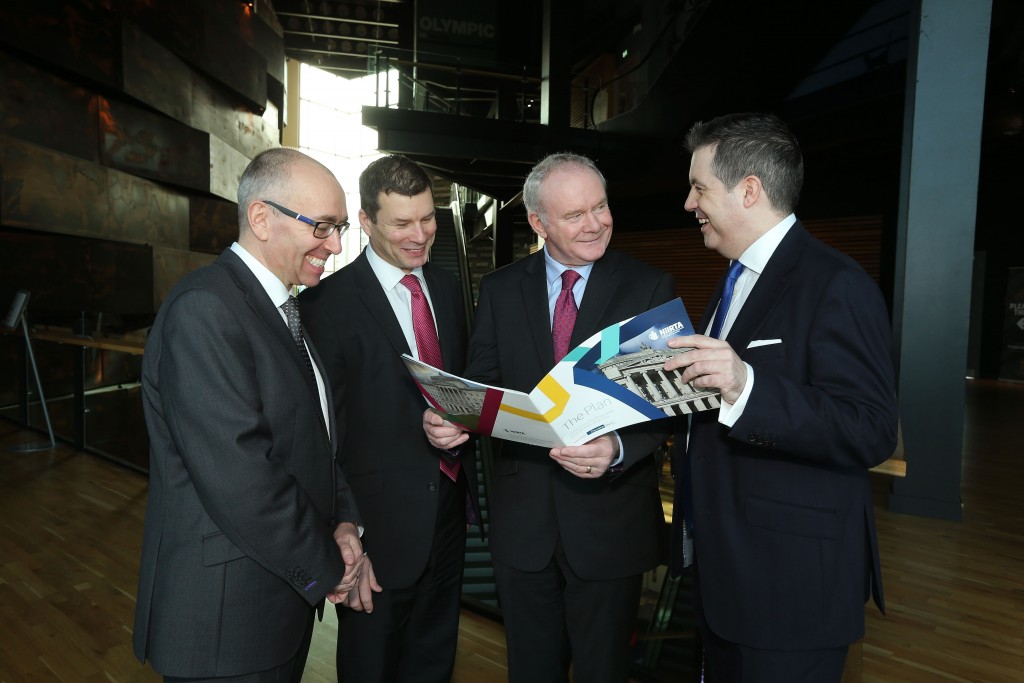
Speaking to Neighbourhood Retailer about The Plan, Rowan said: “We produced a similar document for the previous Stormont election, and a number of its recommendations were introduced.
“NIIRTA’s influence is growing all the time and we consider it our responsibility to support local retail.”
Highlighting the importance of the political sphere on the local industry, Rowan quoted some words given by Prime Minister David Cameron, who described small shops as the lifeblood of local economies, providing a lifeline to local residents.
“Their survival is vital,” he said. “If we care about our communities, and the local, independent retailers that give them their character, then it’s our responsibility to support them.”
Mr Black noted that NIIRTA has already a strong level of support among the convenience sector, suppliers, and sponsors, and works closely with chambers of commerce to protect retailers in city, town, and village centres.
And while NIIRTA continue their work to improve the political-economic climate, Rowan said it was a “good time to be an independent retailer”.
“There are a number of good opportunities out there at the minute, and lots of consolidation is taking place,” he said. “The sale of JC Stewarts is a good example of local retailers expanding effectively, and shows the opportunity is there to merge or exit the market at a good time.
“The situation still has a number of challenges, but has improved to a certain extent.
“The multiples have been under pressure, but Aldi and Lidl are the ones driving the growth. For example, Asda are down some four per cent.
“The convenience market remains strong – Nisa, Musgrave, Henderson’s, these are still the big players in Northern Ireland.”
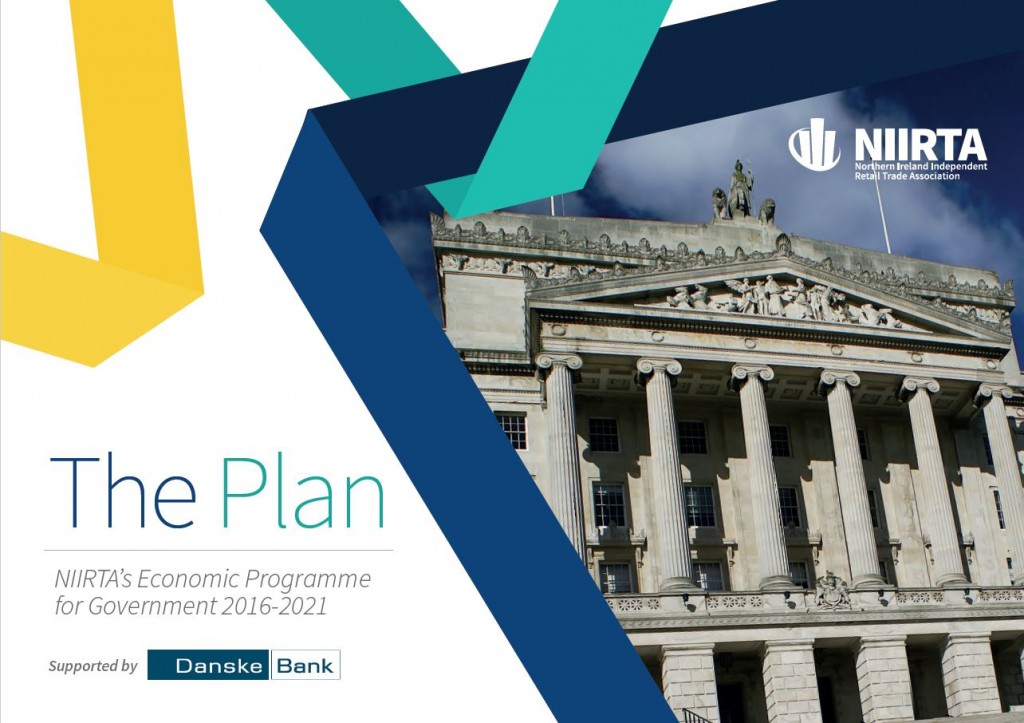
According to Rowan, one of the main ways government can begin improving the retail environment is creating closer ties between education and commerce.
“We need a closer connection between education and skills,” he said. “Our sector has a key role to play in making that step-change. We need closer working between the public and private sectors.”
Indeed, among the association’s policy recommendations are calls for the introduction of a compulsory Entrepreneurship module for pupils aged 14 -18, and work experience for all pupils at Key Stages 4 and 5 (age 14-16).
NIIRTA’s alternative plan for government also sets out a suite of options to tackle rates, and their burden on local business. Among the ways the association believes this can be achieved is by increasing the Small Business Rate Relief scheme from £15k NAV to £18k NAV.
It also calls for a more targeted town centre rate relief scheme, and moving to revaluations every three years to ensure rate bills more closely reflect changes in the property market.
NIIRTA also believes the Empty Premises Rate Relief scheme should be extended, and its qualifying period reduced from 12 to six months.
Rowan said: “In setting the context of the Alternative Plan for Government 2016-2021, the Department of Finance delivered a great deal of improvements to the ratings of local business in recent years, but we still need a number of radical reforms.
“The rates scheme is no longer fit for purpose. It needs to flex with the performance of retailers; to act as a tool that rewards investment. At present, it’s holding the sector back.
“It takes people like NIIRTA to focus their minds on problems like these, so they are addressed for the good of the retailer and for the benefit the economy.”
Mr Black also commented on positive moves by energy companies such as Power NI, who announced in February they will be reducing the average bill for small business owners by some ten per cent.
“This has to be welcomed, and all energy companies should follow in their footsteps” Rowan said. “It should be welcomed by retailers across the board. Power costs in NI are the highest in the UK, and ten per cent is a significant reduction.”
Rises in footfall in the last quarter were also a source of relief for the NIIRTA president.
“Footfall did improve, and we did notice numbers getting better, if only very slightly,” he said, adding that the figures, which show increases in out-of-town shopping centres, highlight the need for stronger high streets.
“Incentivising the high street over out-of-town developments is one of NIIRTA’s main priorities – the high street is the lifeblood of every community and that is a major part of ‘The Plan’.”
The document talks about the establishment of Town Centre Retail Incubator Units, which would be set up in vacant shops, encouraging start-up retailers, and providing affordable rent and marketing support for the first year.
With NI vacancy rates still far beyond the UK average, it’s one use of the many empty units plaguing town and city centres across the region.
Mr Black also praised Ballymena’s decision to become a Business Improvement District, and for the programme to be rolled out to other struggling town centres.
“Town centres are socio-economic melting pots; focal points for commerce, leisure, and many other activities. Their importance is always growing and more needs to be down to protect the important role they play.”
With the Northern Ireland Assembly Elections posed for no later than May 5, and the referendum on the UK’s attachment to Europe expected soon after, 2016 is set for unprecedented tumult.
But for Rowan and NIIRTA, positivity remains at the heart of their planning.
“It’s a time of opportunity,” he said. “It’s a time to look outside the box, for reinvestment. Confidence is returning, banks are beginning to lend again, and these things have to be welcomed.
“2016 is the Year of Food and Drink, and we very much support that, and it’s contribution to the long term growth of both the retail and agri-food industries.
“Northern Ireland PLC is very much open for business, and its towns and village centres will continue to prosper.”



